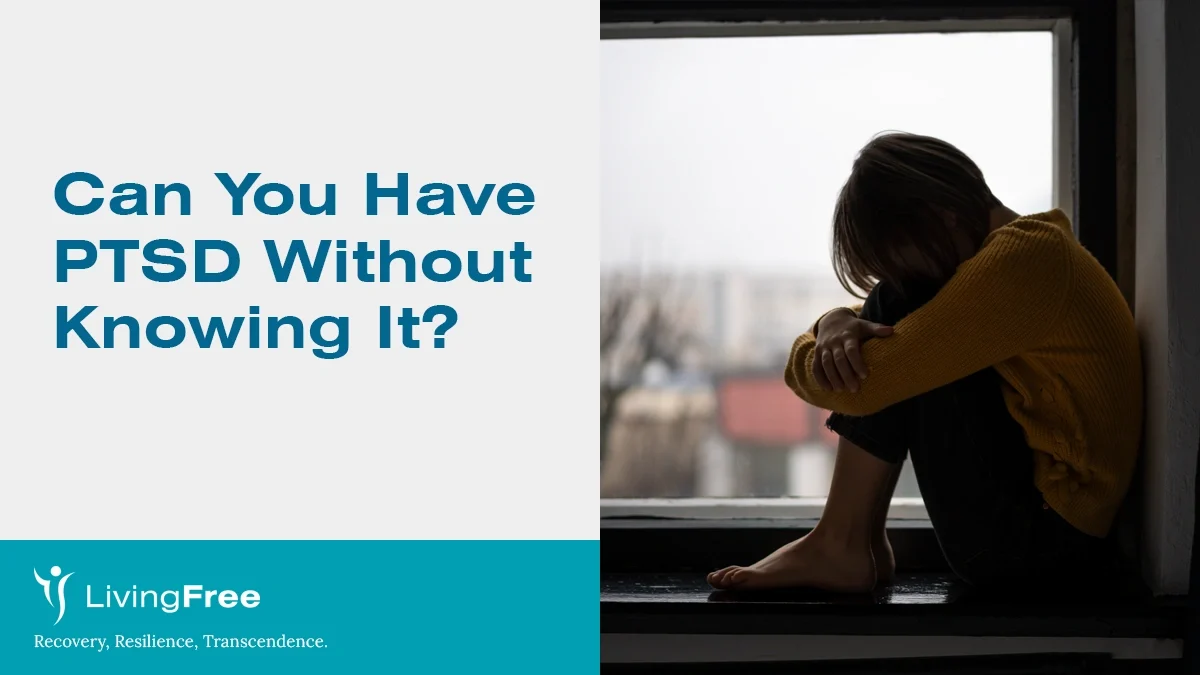Post-traumatic stress disorder (PTSD) is often imagined as a visible and easily identifiable condition. However, for many people, PTSD can remain undiagnosed for years – sometimes without them ever realizing they’re living with it.
Is It Possible to Have PTSD Without Realizing It?
Yes, it’s entirely possible to have PTSD without being consciously aware of it. Symptoms may be misattributed to anxiety, depression, or even personality traits like irritability or emotional numbness. Some individuals don’t associate their current distress with any past trauma, especially when the memory of the event is fragmented or absent.
According to the National Institute of Mental Health, PTSD may occur not only in those who directly experience trauma, but also in people who witness it, learn about it secondhand, or experience vicarious trauma, such as emergency responders or caregivers.
Why You Might Not Know You Have PTSD
Several mechanisms explain why PTSD can go undetected:
1. Memory Suppression or Dissociation
Traumatic memories may be partially or entirely blocked out, especially in cases of childhood trauma or dissociative episodes. The brain’s protective mechanisms sometimes shield individuals from reliving distressing events, but symptoms persist subconsciously.
2. Delayed Onset of Symptoms
PTSD symptoms often appear within the first three months after trauma—but they can also emerge years later, making it difficult to connect present-day struggles with past experiences.
3. Misdiagnosis or Mislabeling
Symptoms such as chronic fatigue, emotional numbness, or irritability may lead to incorrect diagnoses like generalized anxiety disorder, major depression, or even ADHD. In fact, some people go undiagnosed because their trauma history is never discussed during evaluation.
4. Stigma and Avoidance
The stigma around mental health and trauma often keeps individuals from seeking help. Others may consciously avoid thinking about their trauma, one of the core symptoms of PTSD itself.
5. Variability in Symptoms
PTSD doesn’t look the same for everyone. According to Mayo Clinic, symptoms may vary by age, gender, trauma type, and personality2. Some people may experience emotional shutdown, while others feel constantly on edge.
Common PTSD Symptoms to Watch For
The DSM-5 outlines four major symptom clusters, which both NIMH and Mayo Clinic elaborate on:
Intrusive Symptoms
- Flashbacks or reliving the trauma
- Nightmares
- Unwanted, distressing memories
- Physical reactions (e.g., racing heart) to triggers
Avoidance
- Steering clear of people, places, or topics associated with the trauma
- Refusing to talk or think about the event
Negative Changes in Mood or Cognition
- Persistent negative thoughts about oneself or the world
- Distorted guilt or blame
- Detachment from others
- Loss of interest in once-enjoyed activities
Hyperarousal or Reactivity
- Irritability, outbursts, or being “on edge”
- Difficulty sleeping or concentrating
- Being easily startled
- Engaging in risky or reckless behavior
Signs You May Have Undiagnosed PTSD
If you identify with any of the following, it may be worth speaking to a mental health professional:
- You’re chronically anxious, angry, or emotionally flat without a clear reason
- You avoid reminders of certain life periods or locations
- You often feel “disconnected” or numb
- Your reactions to certain stimuli (sounds, smells, dates) are disproportionately strong
- You feel hyperaware, yet emotionally distant in relationships
- You experience unexplained physical symptoms when under stress
Risk Factors for PTSD
Not everyone exposed to trauma develops PTSD. However, certain risk factors make some individuals more vulnerable:
History of previous trauma (especially in childhood)
Lack of social support
Personal or family history of mental illness
High-intensity trauma (e.g., life-threatening, violent)
Ongoing stressors after the event (e.g., job loss, housing instability)
When to Seek Help
If your symptoms last more than one month and interfere with daily functioning, it’s crucial to seek professional help. Early intervention can prevent symptoms from worsening. PTSD can co-occur with depression, substance abuse, and suicidal thoughts, so timely support is critical.
Treatment options include:
- Psychotherapy – Especially trauma-informed cognitive behavioral therapy (CBT), exposure therapy, and EMDR
- Medications – SSRIs and other medications may help manage symptoms
- Support Systems – Involving loved ones in recovery and joining support groups can make a significant difference1
Conclusion
You don’t need to remember every detail of a trauma to be affected by it. If you’ve been feeling emotionally off for a prolonged time—especially if you’re avoiding certain topics, feel detached, or are hypervigilant—it might be more than just stress.
There is no shame in not knowing you’re struggling with PTSD. The first step toward healing is awareness—and help is available.


